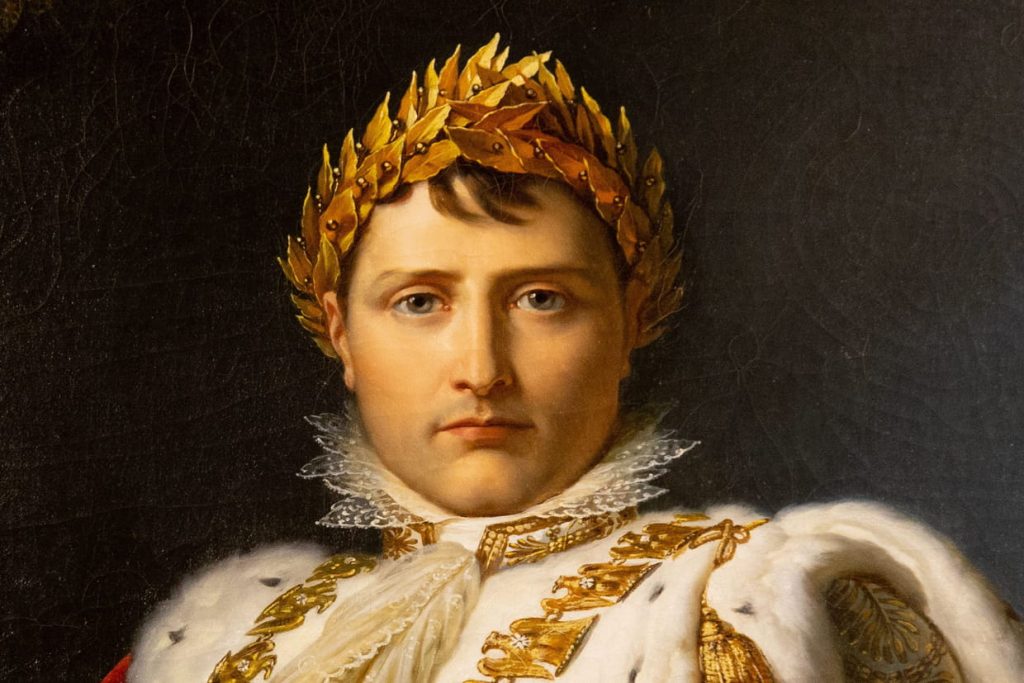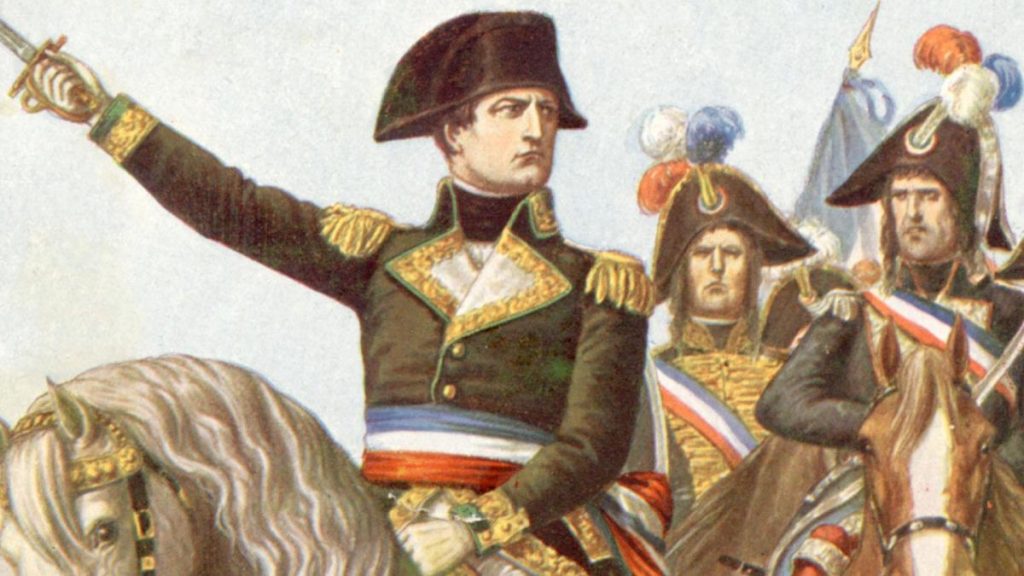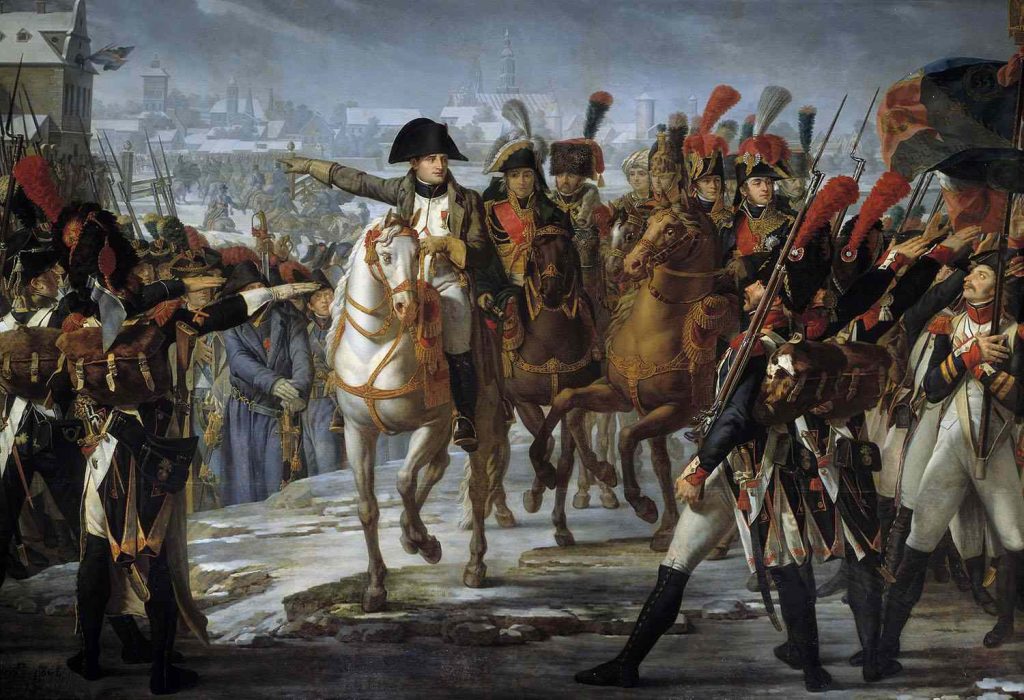Times have changed a lot. Many countries practice democracy now, and forceful takeover of power only happens in third-world countries. But in centuries past, men’s respect came from the battles they won and the land they conquered. It’s no surprise that most leaders who lived hundreds of years ago are remembered only because of their exploits. Like Alexander the Great, Napoleon Bonaparte was one of the most powerful and feared leaders in the world at some point.
Simply called Napoleon, the war general remains one of the world’s greatest military leaders. Napoleon enacted a number of reforms that have endured in France and most of western Europe. Although he left France a little bigger than it had been at the start of the Revolution in 1789, his driving passion was the military expansion of French dominion. Despite this, he was almost world-famous during his lifetime. Emphasis on “almost.”
Here, we will discuss the life of one of history’s most feared and revered men and his conquests.

Who Was Napoleon Bonaparte?
Napoleon Bonaparte was a French military commander and politician who rose to prominence during the French Revolution. He commanded successful campaigns throughout the Revolutionary Wars. He was later known by his regnal name, Napoleon I. Napoleon served as de facto president of the French Republic as the first Consul from 1799 to 1804.
Later, he served as Emperor of the French from 1804 to 1814 and once more in 1815. He is regarded as one of history’s greatest military leaders. However, Napoleon Bonaparte remains one of the most contentious rulers. In fact, his political and cultural imprint lingers to this day.
Napoleon Bonaparte changed military training, supported the Napoleonic Code, which served as the model for subsequent civil-law systems, overhauled education, and forged the enduring Concordat with the Pope.
Napoleon Bonaparte’s Birth and Parental Legacy
Born on 15 August 1759 in Corsica, Napoleon Bonaparte was the second surviving child and the fourth born to lawyer Carlo Buonaparte and Letizia Ramolino.
Before then, the ancient Tuscan nobility of his father’s family had immigrated to Corsica in the sixteenth century. Napoleon’s family was of Italian descent. His maternal ancestors, the Ramolinos, came from a tiny Genoese noble family. His paternal ancestors, the Buonapartes, were descended from a minor Tuscan noble family who relocated to Corsica in the 16th century. The Pietrasentas, Costas, Paraviccinis, and Bonellis, all Corsican families from the interior, were also related to the Buonapartes through marriage and birth.
The Republic of Genoa, a former Italian state, gave Corsica to France in the same year that Napoleon was born. The island was captured by France the same year, even after the state sold its sovereign powers the year before. In 1770, following 14 years of freedom and 500 years of Genoese control, it was finally established as a province.
Even though Maria was pregnant with Napoleon, his parents fought against the French to keep Corsica independent by joining the Corsican resistance. After the Corsican defeat at Ponte Novu in 1769 and Pasquale Paoli’s exile in Britain, his father Carlo, an attorney, started working for the new French government and was later appointed to serve as the island’s representative at the court of Louis XVI in 1777. This means that Napoleon Bonaparte’s father, Carlo, was a patriot who had supported and actively collaborated with Pasquale Paoli during the Corsican war of independence against France.
Read: Who Is Thomas Sankara? 15 Interesting Facts You Never Knew

Napoleon Bonaparte’s Childhood and Education
Napoleon Bonaparte’s mother, whose strict discipline subdued a high-spirited child, had the most significant influence on his upbringing.
Later in adulthood, Napoleon said, “The future destiny of the child is always the work of the mother.” In her second marriage, Napoleon’s maternal grandmother married into the Swiss Fesch family, and for a while, Napoleon’s uncle, cardinal Joseph Fesch, served as the family’s defender. Napoleon had more opportunities to learn than the average Corsican due to his noble and fairly wealthy upbringing.
He relocated to the French mainland when he was 9 years old and enrolled in a religious school in Autun in January 1779. He then transferred to a military academy in Brienne-le-Château in May on a scholarship.
Innovative Tech Solutions, Tailored for You
Our leading tech firm crafts custom software, web & mobile apps, designed with your unique needs in mind. Elevate your business with cutting-edge solutions no one else can offer.
Start NowNapoleon Bonaparte was a vocal Corsican nationalist and favored the separation of the country from France. Like many Corsicans, he read and spoke Corsican (his mother tongue) and Italian (the official language of Corsica). At roughly age 10, he started taking French classes in school. But, although he developed fluency in French, he never learned how to spell the language, correctly and he spoke with a pronounced Corsican accent. As a result of this, Napoleon consequently endured unjust treatment from his schoolmates.
In summary, Napoleon attended three different institutions for his education: Autun for a brief period, Brienne Military College for five years, and the Military Academy in Paris for one year. In February 1785, during Napoleon’s year in Paris, his father passed away, putting his family in a difficult situation. Napoleon became the family’s head before he became 16 years old, despite not being the oldest. Finally, he graduated from the military academy in September, taking 42nd place out of 58 students.
Read: Interesting Facts About Alexander The Great
Napoleon Bonaparte’s Rise to Power
The revolutionary French government had fought wars with other European countries since 1792. In a series of conflicts in Italy in 1796, Napoleon Bonaparte led a French force that routed the bigger armies of Austria, one of his nation’s main foes. The Campo Formio Treaty, signed in 1797 by France and Austria, gave the French more territory.
The Directory, a group of five people in charge of France since 1795, invited Napoleon to lead an invasion of England the next year. However, Napoleon decided that the inferior French naval forces were not yet prepared to face off against the superior British Royal Navy. Instead, to destroy British trade routes with India, he suggested invading Egypt. At the Battle of the Pyramids in July 1798, Napoleon’s forces defeated Egypt’s military tyrants, the Mamluks. However, soon after, his forces were stranded. His naval fleet had been all but destroyed by the British at the Battle of the Nile in August 1798.
After surviving that, Napoleon’s army invaded Syria, held by the Ottoman Empire, at the beginning of 1799. The invasion ended with a failed siege of Acre, now in modern-day Israel. However, Napoleon decided to quit his army in Egypt and return to France that summer because of the tumultuous political climate in France.

The Reign of Napoleon I
Following the Napoleonic wars, Napoleon’s navy was destroyed by the British at the Battle of Trafalgar in October 1805. At the Battle of Austerlitz, which took place in December of that same year, Napoleon’s army overcame the Russians and Austrians, earning it the reputation of being one of his greatest victories. The Confederation of the Rhine was founded after the victory, which caused the Holy Roman Empire to collapse.
Napoleon Bonaparte started to build the so-called Continental System of European port blockades against British trade in 1806. The intention was to engage in extensive economic warfare against Britain. Then, Alexander I (1777–1825) was compelled to sign the Treaty of Tilsit in 1807 due to Napoleon’s victory over the Russians at Friedland in Prussia.
Napoleon gained more ground after the French defeated the Austrians in the Battle of Wagram in 1809. In these years, Napoleon expanded his empire across most of western and central continental Europe, re-established the French aristocracy (which had been destroyed by the French Revolution), and started bestowing titles of nobility onto his devoted friends and family.
Napoleon I’s Fall and Exile
Russian participation in the Continental System ended in 1810. Then Napoleon invaded Russia in the summer of 1812 with a vast army as revenge. When Napoleon’s armies attempted to attack, the Russians devised a tactic of fleeing rather than fighting them in full-scale combat.
Due to their lack of preparation for a protracted conflict, the tactic worked. Napoleon’s men continued to advance deeper into Russia. In the bloody Battle of Borodino in September, both sides suffered significant losses. Almost the entire community had evacuated when Napoleon’s army arrived in Moscow. To starve the enemy soldiers of supplies, retreating Russians started fires throughout the city.
Napoleon was compelled to order his starved, worn-out army out of Moscow after waiting a month for them to surrender. This was because the Russian winter had begun. Unfortunately for him, his army was continuously harassed by an unexpectedly aggressive and ruthless Russian force during the tragic withdrawal.
Only about 100,000 of Napoleon’s 600,000 soldiers who started the battle actually left Russia. Napoleon, who was in his mid-40s, was compelled to abdicate the throne on April 6, 1814. Then, he was banished to Elba, an Italian island in the Mediterranean, as a result of the Treaty of Fontainebleau. But while his wife and son traveled to Austria, he was granted control of the tiny island.
Read: History of the United States of America
Napoleon Bonaparte Aided Freedom in Latin America
Ultimately, the French invasion of Spain sparked revolutions in the Spanish colonies in Latin America. This was practically on the other side of the world, as the French never occupied those colonies. Both during its exile and after it returned to Spain, there were disputes regarding its standing with respect to the Spanish government.
As colonists in Latin America began to value local authority and became angry at how the distant Spanish government handled them, revolutionary movements arose that eventually ushered in independence.
Napoleon Bonaparte Birthed the Idea of The Louvre in Paris
The Louvre was erected during the reign of the French monarchy in 1793. When it began as a museum may be traced back to the French Revolution. The period when it was set out to teach the French and display their national treasures. Afterward, it became a real global institution thanks to Napoleon.
His grand plan to transform the Louvre into an imperial art institution saw the appointment of Vivant Denon as its first director in 1802. When Napoleon returned to Paris with looted items from both public and private museums all around Europe, they were displayed in the Louvre alongside artwork created to honor his greatness. In summary, Napoleon’s Empire gave rise to one of the most important art collections in history.
After a life filled with great victories, Napoleon Bonaparte died on May 5, 1821, in the remote, British-held island of Saint Helena where he had been exiled.
Before you go…
Hey, thank you for reading this blog to the end. I hope it was helpful. Let me tell you a little bit about Nicholas Idoko Technologies. We help businesses and companies build an online presence by developing web, mobile, desktop, and blockchain applications.
As a company, we work with your budget in developing your ideas and projects beautifully and elegantly as well as participate in the growth of your business. We do a lot of freelance work in various sectors such as blockchain, booking, e-commerce, education, online games, voting, and payments. Our ability to provide the needed resources to help clients develop their software packages for their targeted audience on schedule is unmatched.
Be sure to contact us if you need our services! We are readily available.











